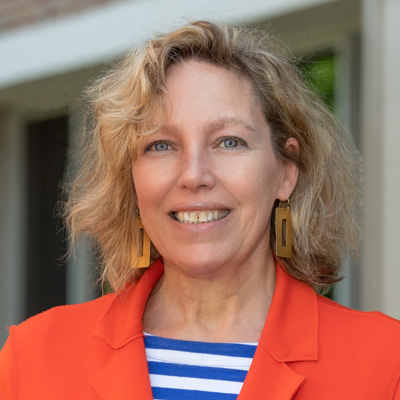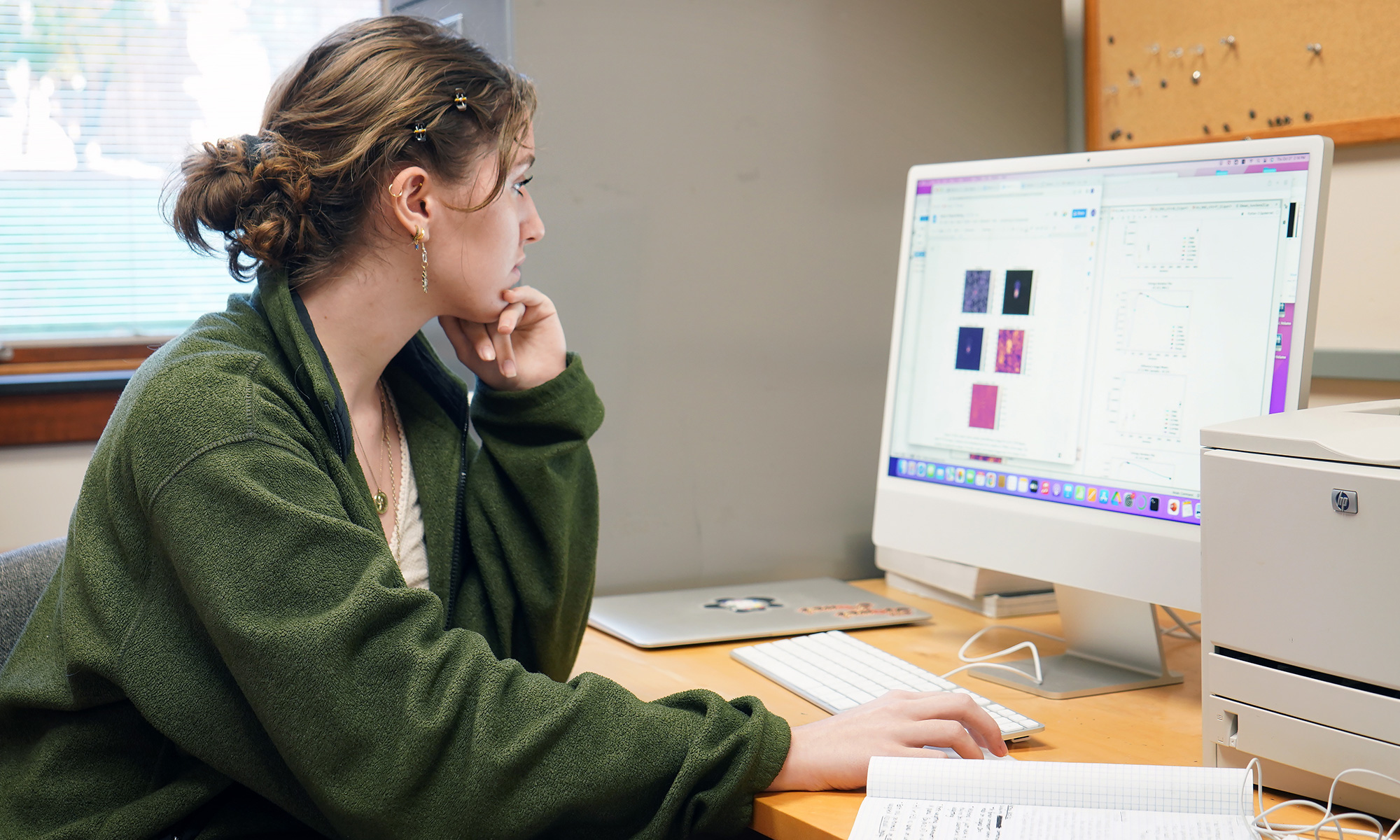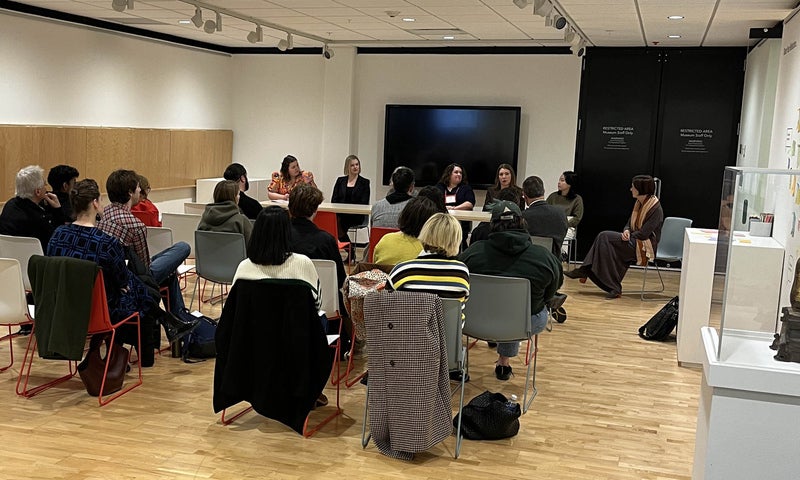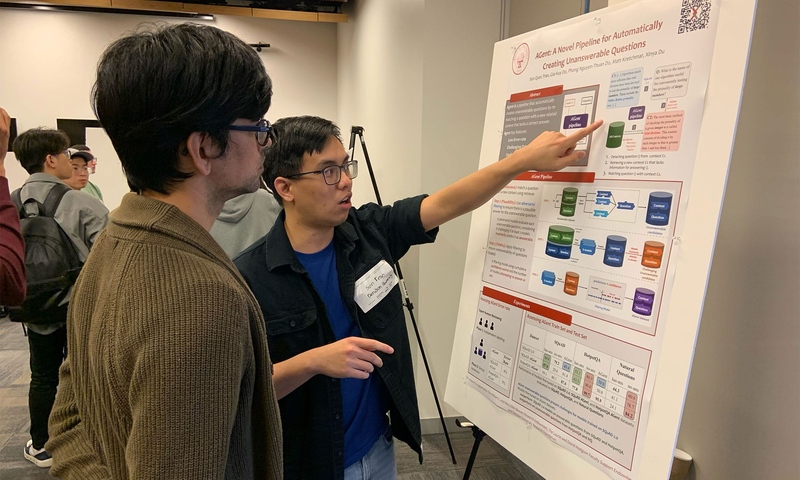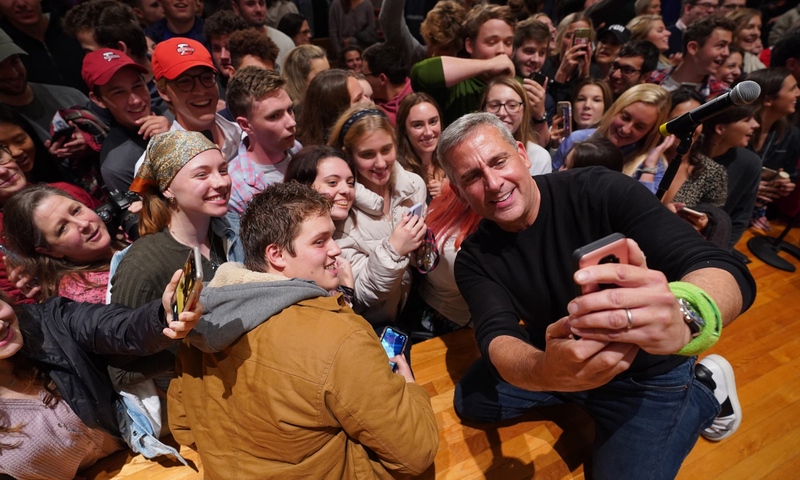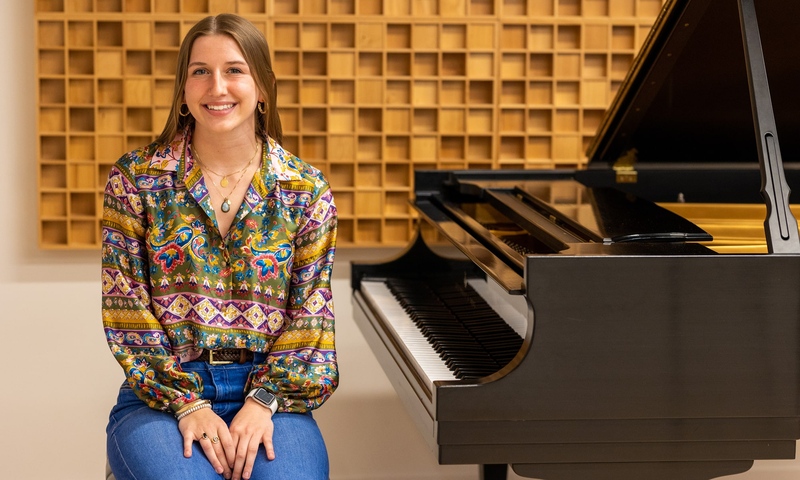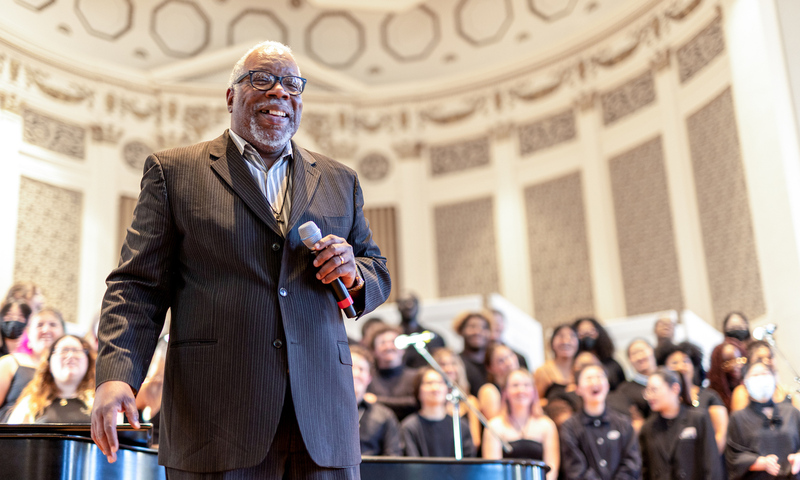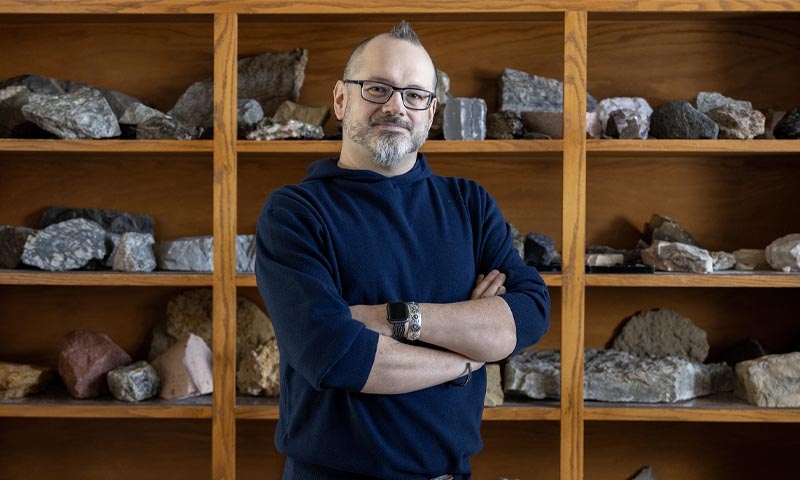At the center of almost every galaxy, including Earth’s own Milky Way, is a nucleus — a huge black hole millions of times heavier than our sun.
Supermassive black holes may be gargantuan, but they are hard to see. Physics major Jaelyn Roth ’23 is contributing to research that helps scientists scrutinize these enormous phenonema. Her methods to improve images of these objects are so compelling the American Astronomical Society has recognized her as a Chambliss Award honoree — one of only 11 undergraduate students nationwide to achieve the prestigious accolade.
The difficulties in “seeing” supermassive black holes are many. In addition to emitting gravitational forces strong enough to swallow light, they are so large and so far away that a single telescope can’t view them in entirety. To get a holistic portrait, scientists stitch together radio frequency images from 10 telescopes located across the U.S. However, combining multiple images creates a lot of room for unwanted artifacts.
Astrophysicists work with the CLEAN computational algorithm to remove those errors, but this isn’t a perfect solution. The CLEAN algorithm doesn’t “know” when the picture has arrived at its optimum. Over many iterations, Roth and her advisor, professor Dan Homan, have found that stopping at the maximum entropy — which serves a numerical measure of randomness — tells the program to stop at its point of highest clarity.
Award-winning research can take a long time to complete. Roth tested the hypothesis and ran simulations on the data over two summers as a research scholar, and finished the project during her senior research semester. Roth and Homan also hope to collaborate on a paper for publication about their research.
“I really loved being a Summer Scholar. You only need to focus on one thing without the rest of classes,” Roth says. “That focus time — it’s where all my brain power went. And the one-on-ones with Dr. Homan were great too. He would come in every morning and we would set the game plan for the day together.”
As an added benefit, “the summer scholar experience helped me realize I want to work as a researcher,” says Roth, who already has taken the next step toward her dream career. In the fall of 2023, she will begin her Ph.D. in astrophysics at Vanderbilt University.
The university’s location in Nashville is another big plus. Roth’s second passion is composing music. “Music enriches my life,” she says.
Her minor in music composition offered plenty of enrichment experiences. In addition to conducting even more independent research — this time on New Age music with professor Dan Blim — she volunteered to take part in a novel experiment with the Newark Granville Symphony Orchestra.
Susan Larson, the organization’s executive director, asked Denison composition students to compose music inspired by a children’s book. Roth chose the award-winnning Last Stop on Market Street by Matt de la Peña.
“I liked this story because the Grandma helps a little boy see beauty where they are,” she says. “I wanted to make it whimsical, and give a lot of time to each character.”
Wanting a range of tones to explore the people in the story, Roth wrote the composition for four instruments. Musicians from the symphony orchestra played her composition to children and families at Newark and Granville public libraries in December 2022.
“Last Stop on Market Street,” as she titled it, also was one of seven pieces performed during Roth’s senior music composition recital. Performers included Denison’s two ensembles-in-residence, ETHEL and Third Coast Percussion, as well as her new friends from the Newark Granville Symphony Orchestra.
The program acknowledgements give a glimpse into how Roth manages to accomplish so much. In addition to thanking her “parents for all they do for me,” she lauded “my friends for being the best part of my Denison experience and for making me go to sleep sometimes.”
